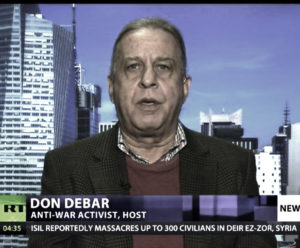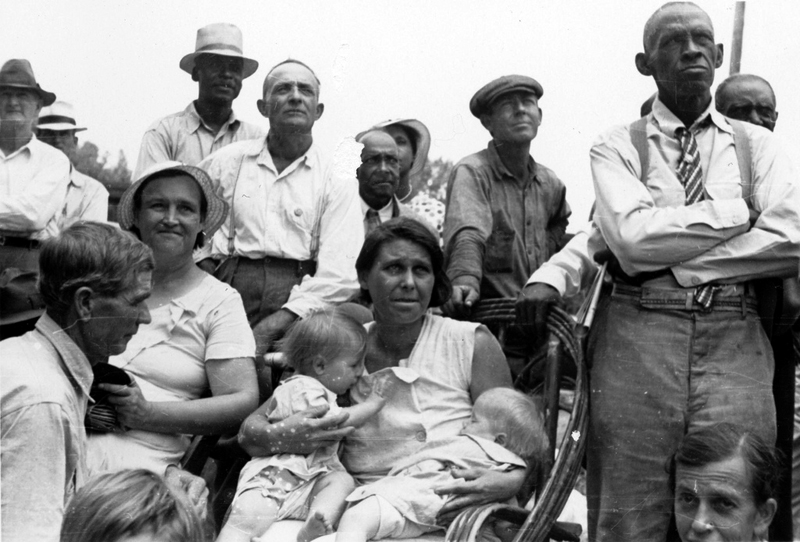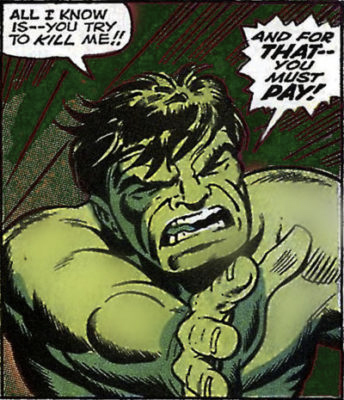
— An Interview with Don DeBar, conducted by Rose Roby
Don DeBar is a highly-respected broadcast journalist and a courageous leader and former candidate for the Green Party. As Senior Producer at Community Public Radio CPR News (CPR), he has taken a strong stand against U.S. imperialism and is an outspoken advocate for social justice of every kind. In 2010, he was among more than 100 activists and journalists from a variety of organizations, religious groups and media outlets who attended a New York gathering with former Iranian President Mahmoud Ahmadinejad in the face of an incendiary media campaign that tried to silence them.

Don DeBar.
Now, the so-called “fake news” hysteria is again ushering in a new McCarthyism, with calls for silencing free political speech and for shutting down access to alternative news sites. Following a recent trip to Havana, Mr. DeBar was locked out of his Facebook account based upon allegations of “suspicious activity.” He has been informed that the only way to reinstate his account is to provide Facebook with sensitive documentation. We will not allow him to be silenced.
Jill Stein’s Recount debacle has gone out with a whimper — no recounts in Michigan and Pennsylvania, and Trump actually gaining 162 votes in Wisconsin. But the media campaign to delegitimize Trump’s presidency — if not to actually overturn it — screeches on. Amid rising hysteria over Russian hacking already at fever pitch, part 2 of this interview with Don DeBar (see here for part 1) continues with his remarks on the past election and the political terrain that is starting to take shape.
Reflecting on the early days of the latest Presidential election season, we recall that the narrative being pushed by the mainstream press could be summed up by one word — Dynasty. Before a single primary vote had been cast, the Beltway had smugly predicted a contest between the Bush and Clinton dynasties. No need to dredge up messy issues like the gutting of the American economy or question the premises of the endless Global War On Terror.
Under “Bush vs. Clinton: the Sequel,” Jeb and Hillary would spar over how to best maintain U.S. Imperialist hegemony and corporate rule, and how far the nation could go in tolerating a secular world view of the LBGQT community and women’s rights vs. the Christian Right’s scorched earth campaigns to crush gay rights and abolish abortion. But as they say, the best laid plans of mice and men …
Two candidates emerged to spectacularly muck up the Beltway’s best laid plans. Coming from ostensibly opposite ends of the political spectrum, both were hitting a very similar raw nerve for the cheering tens of thousands who were filling their rallies, who knew something was very wrong, and that the American Dream had morphed into the American Nightmare.
As Trump’s momentum proved inexorable, and Sanders grudgingly got on board the Hillary Express, the Beltway game plan shifted. The Hillary camp needed to finish off those Sanders followers who had booed Bernie’s calls to get in line. Then they could move sharply to the right, and isolate the radical upstart Trump (Hillary’s opponent of choice). The end-game would be a center-right, unitary Reich that could rule for a (demographically-insured) thousand years with the Democrats setting the pace for war and austerity. Didn’t work out that way, or as Snidely Whiplash put it, “Curses, foiled again!”

Kamikaze Democrats.
Trump upset that apple-cart in November and his stubborn unwillingness to play along with the demonization of Putin and Russia has large segments of the ruling elite in a panic. So in a desperate bid to overthrow his electoral victory they’re attacking Trump through recounts (failed), or pressuring the Electoral College to go rogue through the “Russian-hacking” frenzy. If these Kamikaze Democrats couldn’t keep Trump out of the White House, they might at least leave him politically crippled.
How this all plays out remains to be seen. But left out of these scenarios are the American people, who are in the midst of a developing “working class uprising,” and whose voices may yet be heard. In Part 2 of this interview, Don DeBar explores the under-currents that both the Beltway Establishment and the so-called Left Establishment have ignored to all our peril.
— Rose Roby
St. Petersburg Independents:
So this is a replay of David Cobb’s disastrous Safe States campaign of 2004. Will anyone be able to take the Green Party seriously as a challenge to the two corporate parties if elements of the party’s leadership won’t get on board with taking the party’s independence all the way?
DeBar:
That question answers itself.
The group that is apparently in charge of doing this recount includes the senior people in Stein’s campaign. There is David Cobb, whom I like personally, but our politics are quite different. He is clearly not averse to partnering with the Democratic Party, at least as a tactic. But when you’ve been using the same tactic for 12 years, then you have to call that a strategy. The same goes for Ben Manski. Just ask around Wisconsin. So I’m not really shocked that they’re doing this. I am surprised at Jill.
So Stein was running against Hillary Clinton, who had about a billion dollars, against a backdrop of the general economic conditions in this country, and the lack of legitimacy of most institutions. For instance, the media are only polling at 8% favorable across the board, by their own polls. You can’t just take a bunch of money and repeat over and over that something is true, when it’s exactly the opposite. People aren’t buying it anymore. Hillary outspent Trump 2 or 3 to one, and it didn’t work.
I guess the Greens think that as long as they keep calling themselves an independent party, and they manage to raise more and more money, people will come to believe it. But that’s not how things work any longer. Unless the Green Party can demonstrate that it’s really an independent party, then it’s not going to be viewed as one. We have been living through a series of crises that have been intensifying for at least a decade, and there is going to come a point where people are looking for independent structures, independent leadership, and a place to rally around. And if it’s not the Green Party, then it’s going to be something else. People are afraid of fascism, but take a look at Europe, where the left has failed, and the right is offering hope. People go to it.

The Left contemplates the error of its ways.
This year, both Sanders and Trump got lifted up. People need work, they need relief from medical debt, they need relief from foreclosure and eviction, relief from educational debt. This wasn’t even mentioned in the public discourse until Sanders and Trump started talking about it. Clinton was expecting to be talking about abortion rights, gay rights, and Muslims, and a lot of that was bandied about. But Republicans went out and voted in their own class interests because their needs as a class are so desperate. It was like pouring cold water on their heads. Same phenomenon inside the Democratic Party, where young people are looking down the tunnel of their lives, from the early end, and see nothing but debt, unemployment, living in mommy’s and daddy’s basement. Desperation. When they heard someone proposing even the very concept of solutions, they flocked to it. And that’s where we are now. Objective conditions in this country are not going to get better. The left is sleeping with the Democrats, who are now representing the elites of both the parties that are responsible for these problems in the first place. So if anybody out there offers anything else, a mass of working class people are going to go there. While people are scared to death of fascism, the left is actually setting the stage for fascism by offering no alternative.
SPI:
You seem to be predicting what I was going to ask in advance, so let me just get into it. How about Donald Trump and Bernie Sanders? First there’s Trump, a billionaire celebrity. Then Sanders, a professional politician for over 30 years. Both were tapping into an anti-establishment environment, going up against the entrenched DC bureaucracy personified by Hillary Clinton. Neither Trump nor Sanders represents the working person, but they tapped into the simmering class anger over unemployment and economic insecurity. Do you think the Green Party — which is viewed by some as a social club of petit-bourgeois environmentalists — can tap into that class anger and present a real alternative to millions of people who have been left behind by globalization?
DeBar:
It’s problematic. The Green Party has multiple factions among both its leadership and its rank and file. It breaks down around the questions of class and race. So for instance, back in 2008, I traveled around with Cynthia McKinney, the Green’s presidential candidate back then. We were both surprised by some of the overt racism she faced from inside the Green Party itself.
Anyway, the strategy that the Green Party has been pursuing, unsuccessfully so far, has been to try to get 5% of the presidential vote so they can get federal matching funds for the next presidential cycle. That would certainly up their game, not only in terms of running candidates but also for organizing social movements. And that’s the territory the Green Party should be in at the present. We have to recognize that the opposition to both the Establishment parties is going to be coming from the grassroots.
The question is, can the Greens style themselves as a credible, viable alternative in the electoral sphere, not just in terms of their platform, but in terms of representing a true opposition to the failed Republican and Democratic parties? Does it have the creds and capacity to be deeply involved as a mass opposition with a program that will unify the working class and advance its interests? At the moment, I question whether anybody on the left is styled to do that.

Donald Trump arrives in Washington.
What I see is a Beltway elite riding through a series of crises. They’re looking at the uprising in the Democratic Party, they’re looking at the uprising in the Republican Party. And despite all their public relations efforts to paint something to the contrary, they at least recognize that they’re facing an uprising of the working class. I mean, there’s been an uprising in the streets since 2014, or even since Occupy five years ago There are stirrings among the millennials, stirrings among the increasingly proletarianized and precariatized sectors of the petit-bourgeoisie, or among those who are wanting or expecting to become petit-bourgeoisie. The Establishment is looking at the conditions for a general uprising and I know that scares them. So for the Democrats, their game was to tamp down the Sanders campaign, which they defused successfully, at least as a campaign in itself, and Sanders himself even abdicated whatever leadership role he might have had. As for the movement in the streets, such as Black Lives Matter, the elites successfully kept it from uniting with Sanders.
Then the other part of the working class was staging an uprising within the Republican Party. For the first time in decades, they were articulating a working-class program. And it must be said that for all the racist Tourette’s Syndrome messaging that came out of his tweets, Trump was talking about ending the foreign policy of regime change, calling off the pending war with Russia and China, and ending that whole neocon project. He was talking about realigning American policy and cooperating with other major powers to deal with terrorism. That was a big applause-getter at the Republican convention.
The elites needed to prevent Sanders from unifying both with the people in the streets, and with the people who were gathering around Trump, so they set them off against each other. That’s where they are now. Come January 20, there are going to be two or three factions of the working class parading against each other. Those are the political conditions under which a future Green Party political/electoral campaign or organizing effort will have to take place. And now, as a result of this recount stuff, they’re walking into that situation with their very independence having been compromised by their own actions. It’s problematic at best.
SPI:
Speaking personally, I have a lot of leftist “friends” on social media, and the utter contempt, the open contempt these leftists, or liberals posing as leftists, have for white poor people made me remember why people like me end up on the right, why people like me end up as fascists. So I guess my still being a socialist is like some kind of religion. I must be a true believer. It’s like with devout Christians, no matter how much the church’s hierarchy kicks them in the teeth, they’re not going to give up their belief in Christ. So I’ve spent 25 years of my life on the left, treated like I’m shit under their shoes. When I was younger, I was willing to put up with such things. But as I get older …
DeBar:
Interesting. I have to admit that as late as about August or September of last year, I was watching that phenomenon we’re describing across the class, and I wasn’t seeing it. I was still seeing things in the terms that we’re accustomed to. It’s embarrassing, the imagery we were seeing things in. Remember that movie “Joe” with Peter Boyle, all these hard hats who were wolf-whistling women, and beating up hippies. That had become our understanding of the working class. I’ll admit I even saw my parents that way. It took me a while to understand enough about myself to even understand my own parents. It took me till this past year to understand that I was looking at the whole white working-class through that same kaleidoscope. I saw them with a great deal of contempt, thought they had no revolutionary potential. They were irredeemable. Deplorables, as they were called by the Clinton campaign.
 I saw them rising up to support that guy Trump, who had written that editorial back in 1989 calling for the execution of those kids, the Central Park 5, one of whom was the son of a comrade of mine in New York. Our narrative was that he was unleashing white supremacy and fascism, when he entered the race. The media would call me up, wanting to talk about Trump. I would say, “Trump? Forget him, he’s just boosting his brand. He gets a lot of face time on TV, and he charges $10 million to hang his name on some building. That’s all he’s doing.” Then he started catching fire, and on television I’m seeing David Duke, the Stars and Bars, that maniac who killed all those people in a church in Carolina. I thought, these folks are right, he is unleashing fascism.
I saw them rising up to support that guy Trump, who had written that editorial back in 1989 calling for the execution of those kids, the Central Park 5, one of whom was the son of a comrade of mine in New York. Our narrative was that he was unleashing white supremacy and fascism, when he entered the race. The media would call me up, wanting to talk about Trump. I would say, “Trump? Forget him, he’s just boosting his brand. He gets a lot of face time on TV, and he charges $10 million to hang his name on some building. That’s all he’s doing.” Then he started catching fire, and on television I’m seeing David Duke, the Stars and Bars, that maniac who killed all those people in a church in Carolina. I thought, these folks are right, he is unleashing fascism.
That was until I had a conversation with a friend of mine named Tony Montero, who used to head the Black Studies department at Temple University in Philadelphia, and had gotten tossed out for opposing Temple gentrifying poor neighborhoods. He is a renowned scholar of W.E.B. DuBois, who had done epic work on the relationship between race and class. That made Tony able to see what I was blind to, that we were experiencing a generalized uprising by various sectors of the working class. The Republican working class was having an uprising against the Republican Party. There was an uprising in the Democratic Party where they were questioning their fate in the next decade or two. Millennials and others have been taking a whipping from the Democratic Party. People have been getting murdered every day while we have a Black president and a Black attorney general. Class is now part of people’s political perspective, the 1% versus the 99%. Fundamental illusions are being questioned.
When Prof. Montero pointed out these actual objective conditions, Clinton’s role in creating them and where she was likely to take things, it gave me an entirely different outlook. If Trump is unleashing white supremacy, unleashing a fascist movement, how can that install itself in power when it embraces at most a third of the country? The material base doesn’t exist, not in the way it existed in Germany in 1932, 33 and 34. The narrative they’re spinning now has nothing to do with that actual history.
In fact, that history more closely resembles the Clinton campaign. Hitler did not come to power on the back of the working class uprising that only brought him close to power in the 1932 election. He only came to power after he cut a deal with the very bourgeoisie that had just run Hindenburg against him. Hitler says to the bourgeoisie, “Let me have the power, and you can have the economy. This whole idea of a second revolution? Seizing the means of production? Forget that nonsense! I’ll take care of those leaders talking about that. You get to keep the economy. I get the state.” So in 1933, Hitler got the bourgeoisie itself to make Hindenburg turn around and make Hitler chancellor. That’s what happened in Germany. This year, where are those forces arrayed? They are of course the ones arrayed around the Clinton campaign, not the Trump campaign.
SPI:
When you try to have a conversation with people who are terrified of Trump, they have a very hard time understanding that Hillary is a fascist force. Well, they argue, she’s not mean to gays, she’ll let you have an abortion. So how can somebody be a fascist if they don’t hate gays and abortion.
DeBar:
Goebbels and some of the other leaders around Hitler certainly knew that you could be both fascist and gay. People just don’t have a very deep understanding of fascism, or a lot of other things, either. People aren’t looking at the relevant forces on the ground, at the political conditions here.
SPI:
You can’t say Trump’s better on anything to these people defending Clinton. On Russia? Trump’s a fascist. Whatever? Trump’s a fascist.
DeBar:

The Triumph of Death — Bosch.
These people keep defending Hillary Clinton, even though when she was secretary of state she was responsible for killing millions of Muslims, from her vote for invading Iraq to Obama’s continuation of the wars in Iraq, Afghanistan, and Libya, now the war in Syria, and the wars that are going on in Nigeria and Africa where Muslims are involved. By the way, there are a few million dying in the Congo. When Obama was the Deporter-in-Chief, he deported more immigrants than any president in the history of the country, more than Trump could ever hope to keep out of the U.S., or deport. But before even bringing any of this up, you have to say, “Listen, hey, I’m not supporting Trump, but …” Nobody has to say, “I’m not supporting Clinton.”
If you do want to talk about overt fascism in the U.S., here’s how it happens: By the rules that were in existence on November 8, 2016, Trump won the election. He’s sketched out policy ideas, made big promises, created big expectations. Now suppose through this partly grassroots, but even more astro-turf uprising against Trump, and through extra-legal or extraordinary procedural maneuvers, the elites actually do nullify the vote. Trump doesn’t become president. Clinton gets put into the White House. You still have this 46-47% of the electorate that had voted for Trump in the face of this massive media onslaught, this whole cultural onslaught. And they’ve been robbed!
Who knows how that would play out? There’s still not going to be any relief from the intolerable conditions facing the working class. It’s going to get ugly. Whatever uprising takes place, whether the working class goes to war with itself, and breaks into various forces, or they join forces, the only solution is going to be a crackdown. We are not prepared to carry an uprising through to a revolution. There is no leadership, there is no organization, we don’t even have a unified program, and we do not yet have the institutional structures to govern ourselves. No one is even proposing such structures. Whatever the people who lead these little lefty parties think, about themselves as a vanguard, or whatever, the material conditions for that do not exist. Which means that an uprising leads directly to overt fascism. These people that are so afraid of fascism, they better think about what they are doing.
SPI:
Look at the Bernie Sanders crowd. I bet a lot of them ended up voting for Trump. They said, “You know what, I despise Hillary, she cheated us out of the nomination, and Trump at least says he’s going to do something about jobs.” With all Sanders’ limitations — and I was well aware of those limitations — Bernie Sanders showed us that there is a white working class that is interested in something other than fascism. It wasn’t just the man, it was the moment. Not just what Sanders was, but what people were responding to. People on the left were making a big deal of stuff like “he’s terrible, he kills Palestinians.” But that’s not what his supporters were responding to. If anything, a lot of them were supporting him in spite of that. They were hearing Sanders talking about expanding the safety net. At some point, the left has to figure out how to have a conversation that isn’t just “well, check your privilege.” The suffering, poor working class doesn’t want to keep hearing how privileged they are. They don’t want to keep hearing how they’ve said something wrong, they’ve used the wrong word, everyone treating you like you farted in church.
 DeBar:
DeBar:
The ironic part is that it’s one thing when you’re hearing “privileged” from people who are less privileged than you. You can engage in that conversation. But when you’re hearing it from people who are very privileged, people who are making money just fine, bragging about unemployment being down to 4.9% and golly look at the Dow, well, when those people are lecturing poor working class people of whatever color about their privilege, it doesn’t resonate. People know jive when they’re hungry. They are hungry and there’s a lot of jive out there.


As usual, articles by Jeff and/or Rose are very interesting. I don’t follow the GP closely, but wish they would do more outside-the-box stuff to recruit more supporters, on a continual basis. I tend not to hear much of anything about the GP except during Presidential elections. I think the GP, e.g., should be looking to build social capital, via various efforts that affect people’s lives in an unforgettable way. They don’t even have to provide most of the labor and/or $$ (which I understand they do not have lots of, and won’t be getting corporate dollars). They can be… Read more »